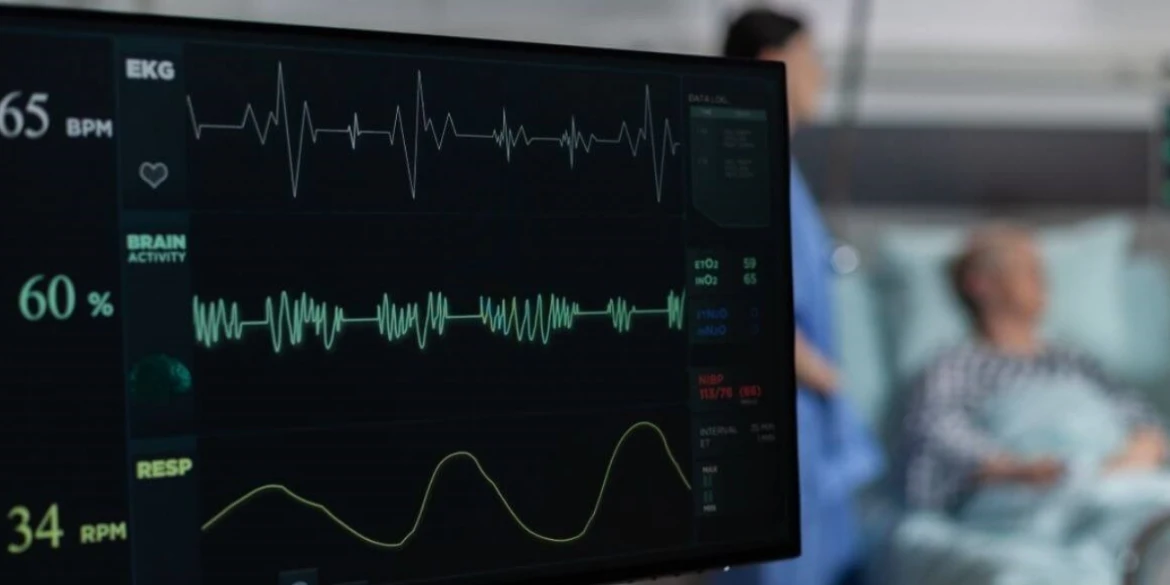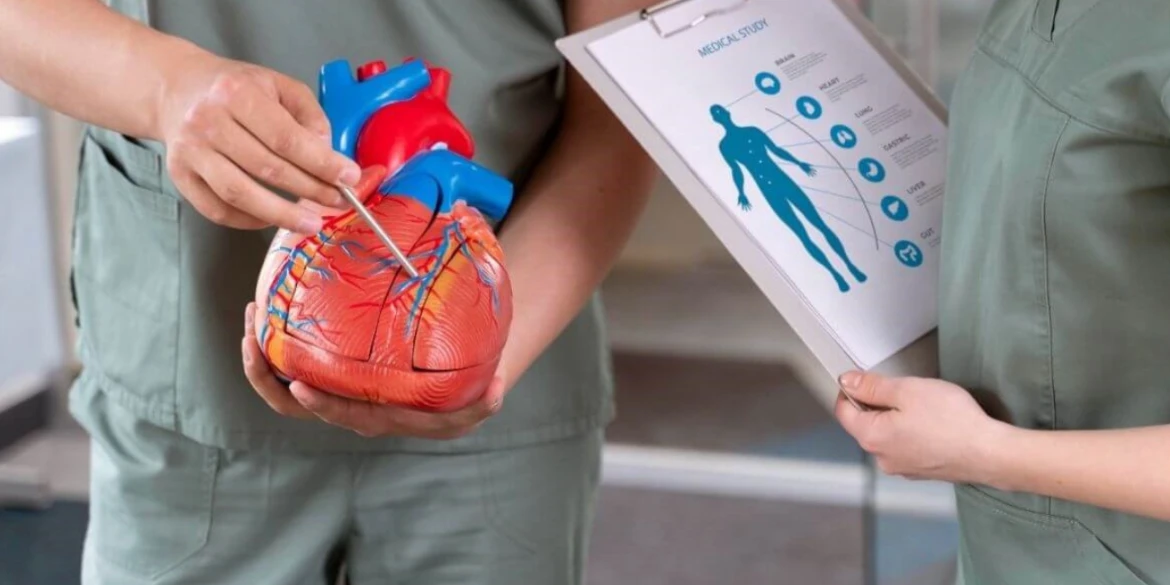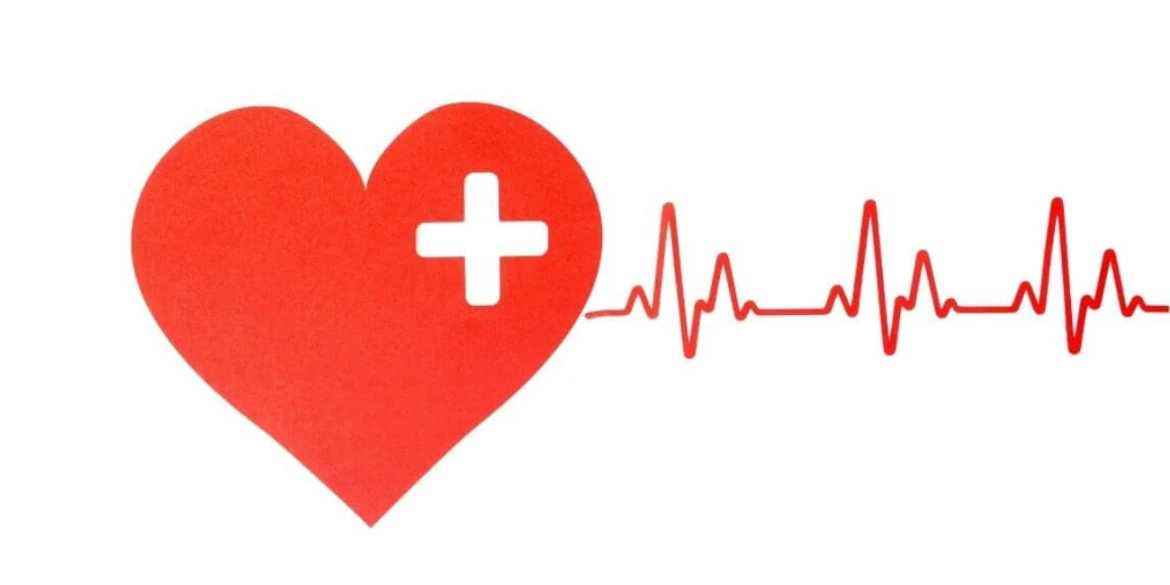Cardiac or Heart Arrhythmias

A normal heart rhythm keeps your blood flowing like it should, but arrhythmias can throw things off.
They might cause symptoms like dizziness or shortness of breath and, in some cases, lead to serious problems like stroke or heart failure.
What are arrhythmias?
Arrhythmias happen when the heart’s electrical system doesn’t work quite right, causing an irregular heartbeat. This might make your heart beat too fast, too slow, or just all over the place.
Normally, the sinoatrial (SA) node keeps your heartbeat steady, but when those signals get disrupted, things can go out of sync.
Classification or Types
- Tachycardia (Fast Heartbeat): Tachycardia happens when your heart beats faster than normal—usually over 100 beats per minute. It can affect either the upper chambers (atria) or the lower chambers (ventricles) of the heart. There are also different types of tachycardia:
- Atrial Tachycardia: A fast heart rate that starts in the atria.
- Supraventricular Tachycardia (SVT): SVT is just a general term for fast heart rhythms that start above the ventricles.
- Ventricular Tachycardia: A rapid heart rate starting in the ventricles can be dangerous and even life-threatening if it’s not treated quickly.
- Atrial Flutter: This is a type of supraventricular tachycardia where the atria beat extremely fast, usually between 240 and 340 beats per minute. It happens because of a 'short circuit' in the upper part of the heart.
- Bradycardia (Slow Heartbeat): Bradycardia is when your heart beats slower than usual—typically less than 60 beats per minute. This can happen if there’s an issue with your heart’s natural pacemaker (the SA node) or the electrical pathways that help your heart keep rhythm.
- Atrial Fibrillation (Irregular and Rapid Heartbeat): Atrial fibrillation or AFib is a common heart condition where the heartbeat becomes irregular and often too fast. Instead of the atria contracting normally, they quiver, which makes the heart work less efficiently.
- Ventricular Arrhythmias: Ventricular arrhythmias are abnormal heart rhythms that start in the lower chambers of the heart. They can be serious and often need quick medical care. The main types of these arrhythmias include:
- Ventricular Fibrillation (VFib): VFib is a serious condition where the heart’s ventricles start quivering instead of pumping like they should. This causes a big drop in blood pressure and blood flow.
- Ventricular Tachycardia (VT): A fast heart rate starting in the ventricles can be dangerous if it leads to VFib or stops the heart from beating properly.
Symptoms of Arrhythmias
- Palpitations: Ever notice your heartbeat feeling a bit off—like it’s racing, pounding, fluttering, or even skipping a beat? These sensations, called palpitations, can be one of the first signs that something might be up with your heart’s rhythm.
- Dizziness or Lightheadedness: An irregular heartbeat can make it harder for your brain to get enough blood, which might leave you feeling dizzy or light-headed. In more serious cases, it could even cause you to faint.
- Fatigue: When your heart isn’t pumping efficiently, it can mean your body isn’t getting enough oxygen and nutrients. This can leave you feeling tired and worn out, even after doing just a little.
- Chest Discomfort or Pain: Some arrhythmias can cause chest discomfort, tightness, or even pain that might feel like angina or a heart attack. It’s definitely something to take seriously and get checked out right away.
- Fainting (Syncope): Severe arrhythmias can cause a big drop in blood pressure, which might make you pass out or faint. It’s a serious issue, so it’s important to get it checked out by a doctor right away.
- Cardiac Arrest: In serious cases, arrhythmias can lead to cardiac arrest, which is when the heart suddenly stops beating. It’s a life-threatening situation that needs immediate emergency help.
Causes of Arrhythmias

Heart-Related Issues (Ventricular Tachycardia):
- Coronary Artery Disease (CAD): When the coronary arteries get blocked, it limits blood flow to the heart muscle, which can mess with your heart's rhythm.
- Heart Attack: A heart attack can damage heart tissue, throwing off the electrical signals and causing irregular beats.
- Cardiomyopathy: Heart muscle diseases can change the way your heart sends electrical signals, leading to arrhythmias.
- Congenital Heart Defects: Being born with structural heart issues can affect how your heart keeps its rhythm.
- High Blood Pressure: High blood pressure can make your heart enlarge, which can interfere with its electrical signals.
- Left Ventricle Problems: If the left ventricle isn’t pumping blood effectively, it can disrupt the heart’s electrical signals and cause arrhythmias.
- Pulmonary Artery Issues: Problems in the pulmonary artery, like blockages or pressure changes, can affect blood flow to the lungs and throw off your heart’s rhythm.
Lifestyle Factors
- Stress and Anxiety: Feeling stressed or anxious? That can mess with your heart rhythm by speeding up your heartbeat and releasing stress hormones.
- Caffeine and Alcohol: Love your coffee or a glass of wine? Too much of either can throw off your heart's rhythm.
- Smoking: Smoking isn’t just bad for your lungs—it can damage your heart and blood vessels, making arrhythmias more likely.
- Poor Diet: Eating unhealthy foods can lead to issues like obesity and high cholesterol, which aren’t great for your heart either.
Underlying Conditions
- Electrolyte Imbalances: Electrolytes like potassium, calcium, and magnesium are super important for keeping your heart running smoothly. When they’re out of balance, it can mess with your heart’s rhythm.
- Thyroid Disorders: Whether your thyroid is working overtime (hyperthyroidism) or slowing down too much (hypothyroidism), it can throw your heart’s rhythm out of sync.
- Diabetes: High blood sugar isn’t just about diabetes—it can also lead to heart problems, including irregular heartbeats.
- Sleep Apnoea: If you’re dealing with sleep apnoea—where your breathing stops and starts during the night—it can cause your heart to beat irregularly.
Diagnosis
- Electrocardiogram (ECG): An ECG is a quick and easy test that checks your heart’s electrical activity using small electrodes. It can help spot things like irregular heartbeats, including atrial fibrillation, tachycardia, or bradycardia.
- Holter Monitor: This is a portable ECG device you wear for 24 to 48 hours to continuously track your heart’s activity. It’s super helpful for catching those intermittent arrhythmias that might not show up during a regular ECG.
- Event Monitor: Think of this as a longer-term version of the Holter monitor. You wear it for weeks or even months, and you activate it whenever you feel symptoms. It’s a great way to capture arrhythmias as they happen.
- Echocardiogram: This is basically an ultrasound of your heart. It uses sound waves to create pictures of your heart’s structure and how it’s working. It’s really handy for spotting any heart issues that might be causing arrhythmias.
- Stress Test: A stress test tracks your heart while you exercise—usually on a treadmill or stationary bike. It’s a great way to see how your heart copes with physical activity and to spot arrhythmias triggered by exercise.
- Electrophysiological (EP) Study: This one’s a bit more in-depth. Thin, flexible tubes are threaded into your heart through blood vessels to record its electrical activity. It’s used when other tests don’t give clear answers and helps pinpoint exactly where the arrhythmias are coming from.
- Implantable Loop Recorder: This tiny device is implanted under the skin on your chest and keeps an eye on your heart’s electrical activity for up to three years. It’s great for catching those rare, hard-to-detect arrhythmias.
- Preventing Sudden Cardiac Death: These tests are so important because arrhythmias are a major cause of sudden cardiac death. In fact, about 80% of these cases are due to ventricular arrhythmias, so diagnosing and treating them early can truly save lives.
Heart Arrhythmia Treatment Options
- Medications: There are a few options here, like antiarrhythmic, beta-blockers, calcium channel blockers, and anticoagulants, all designed to help keep your heart rate and rhythm under control.
- Procedures: Things like catheter ablation, cardioversion, pacemakers, or implantable cardioverter-defibrillators (ICDs) can be used depending on what your heart needs.
- Lifestyle Changes: Simple changes like quitting smoking, cutting back on alcohol, managing stress, and eating healthier can make a big difference in managing arrhythmia.
- Surgery: In more serious cases, surgeries like the Maze procedure or coronary artery bypass grafting (CABG) might be needed.
The Key to Heart Health in Malaysia

Taking care of your heart is so important, especially when it comes to managing cardiac arrhythmias. Catching them early and sticking to a healthy lifestyle can make a big difference.
At Prince Court Medical Centre, we’re all about taking care of your heart.
With expert cardiologist in Malaysia and advanced facilities, we’re here to provide personalised treatments and the latest tests to keep your heart healthy. Book a consultation today.




















